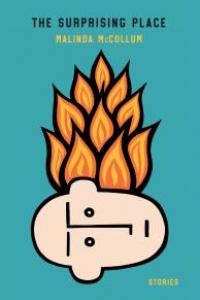
George Saunders, CivilWarLand in Bad Decline, Random House paperback edition, 2016, 198 pp. Originally published in 1996.
Two Instances of Prevarication
On a Writer’s Acknowledgements Page
“I often marvel at the persona engendered by the influence of the form. The writer presents himself as one surrounded, cushioned, buoyed up by wonderful friends. He is, he says, ‘blessed,’ ‘in luck,’ ‘serene’ even in his obligations. Not a word on the acknowledgements page about grievances, or about offenses received and inflicted. Who would suspect a curmudgeon behind such handsome avowals? But perhaps this is what they are good for. By their virtue, ill-humor, rancor, resentments are temporarily purged, and the author is given a glimpse of the person he might have become, had he formed the habit of privately closing each day with such notations as are called for by the publishing of acknowledgements.” Leo Steinberg Continue reading
 Was it the intention of Randall Brown or his publisher to make a statement by putting the word “stories” on the cover of This Is How He Learned to Love (
Was it the intention of Randall Brown or his publisher to make a statement by putting the word “stories” on the cover of This Is How He Learned to Love (

 When does a presence become a force to be reckoned with? A few years ago, I became aware of Stephanie Dickinson because her name often appeared in literary magazines. She was a prolific writer, popping up in many places. I’d read a few of her flash pieces, which were strong in imagery, but I’d never read an entire book of her work until now. Her latest collection of short stories, Flashlight Girls Run (
When does a presence become a force to be reckoned with? A few years ago, I became aware of Stephanie Dickinson because her name often appeared in literary magazines. She was a prolific writer, popping up in many places. I’d read a few of her flash pieces, which were strong in imagery, but I’d never read an entire book of her work until now. Her latest collection of short stories, Flashlight Girls Run (



 THE GREAT AMERICAN BOONDOGGLE
THE GREAT AMERICAN BOONDOGGLE